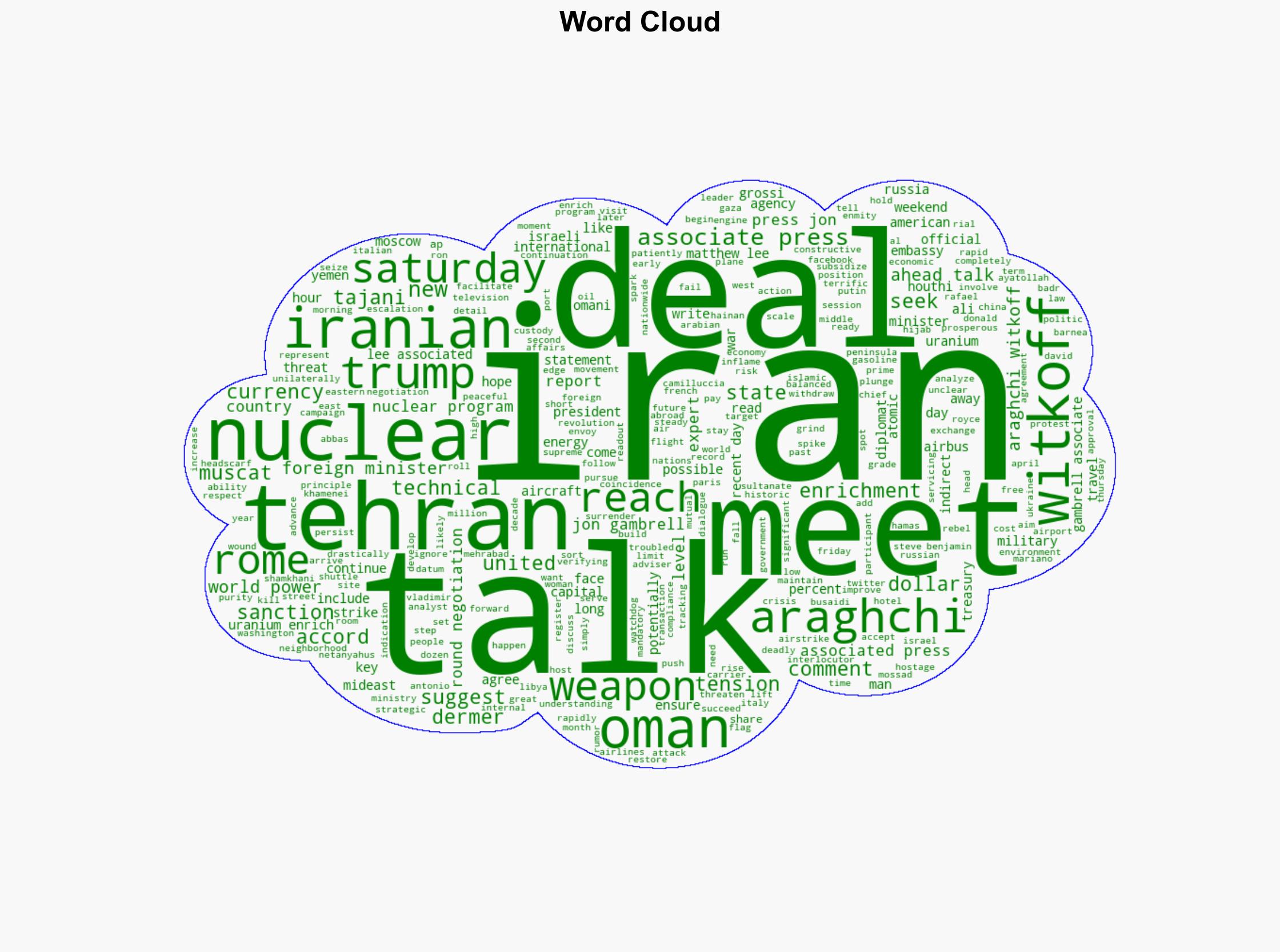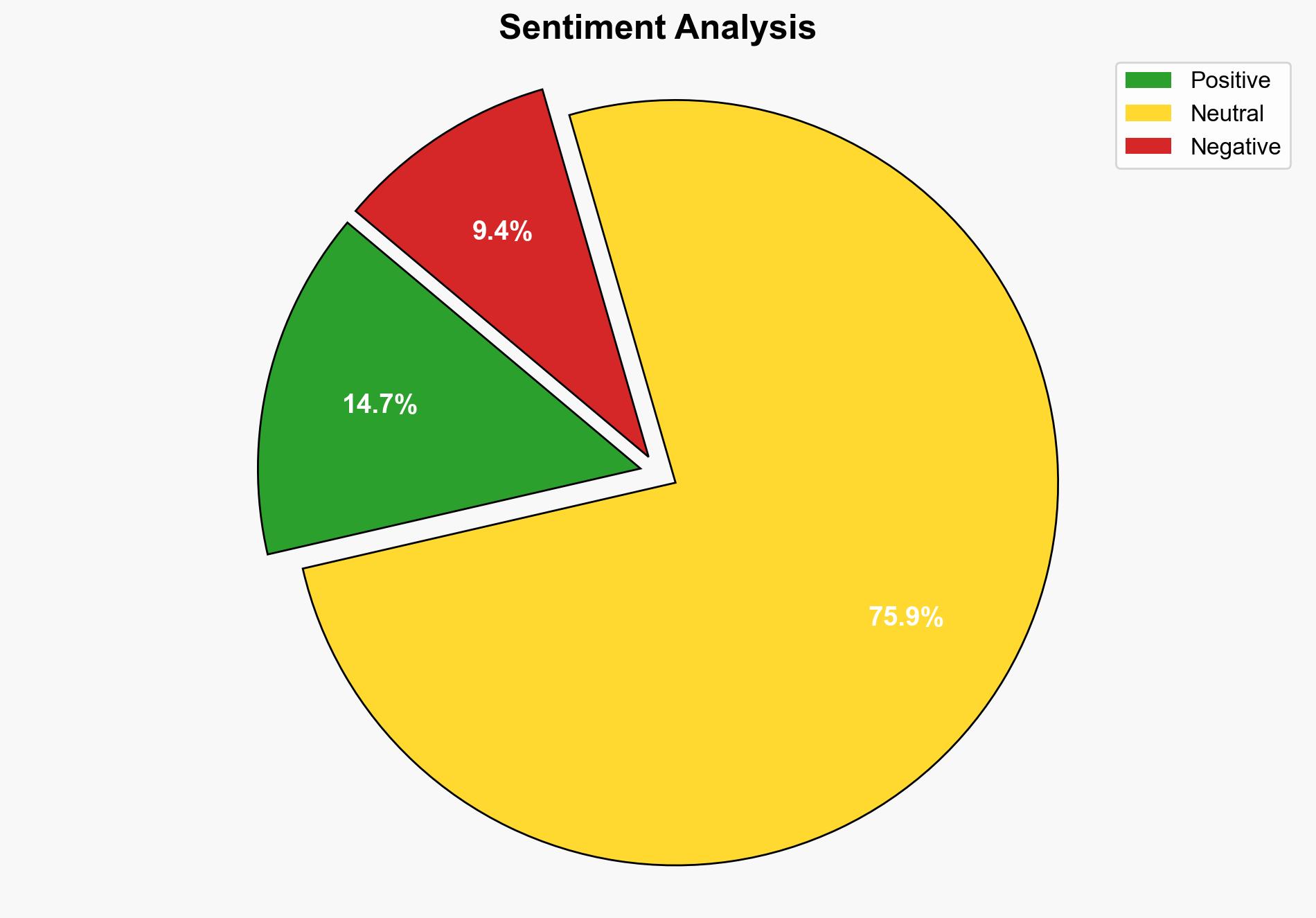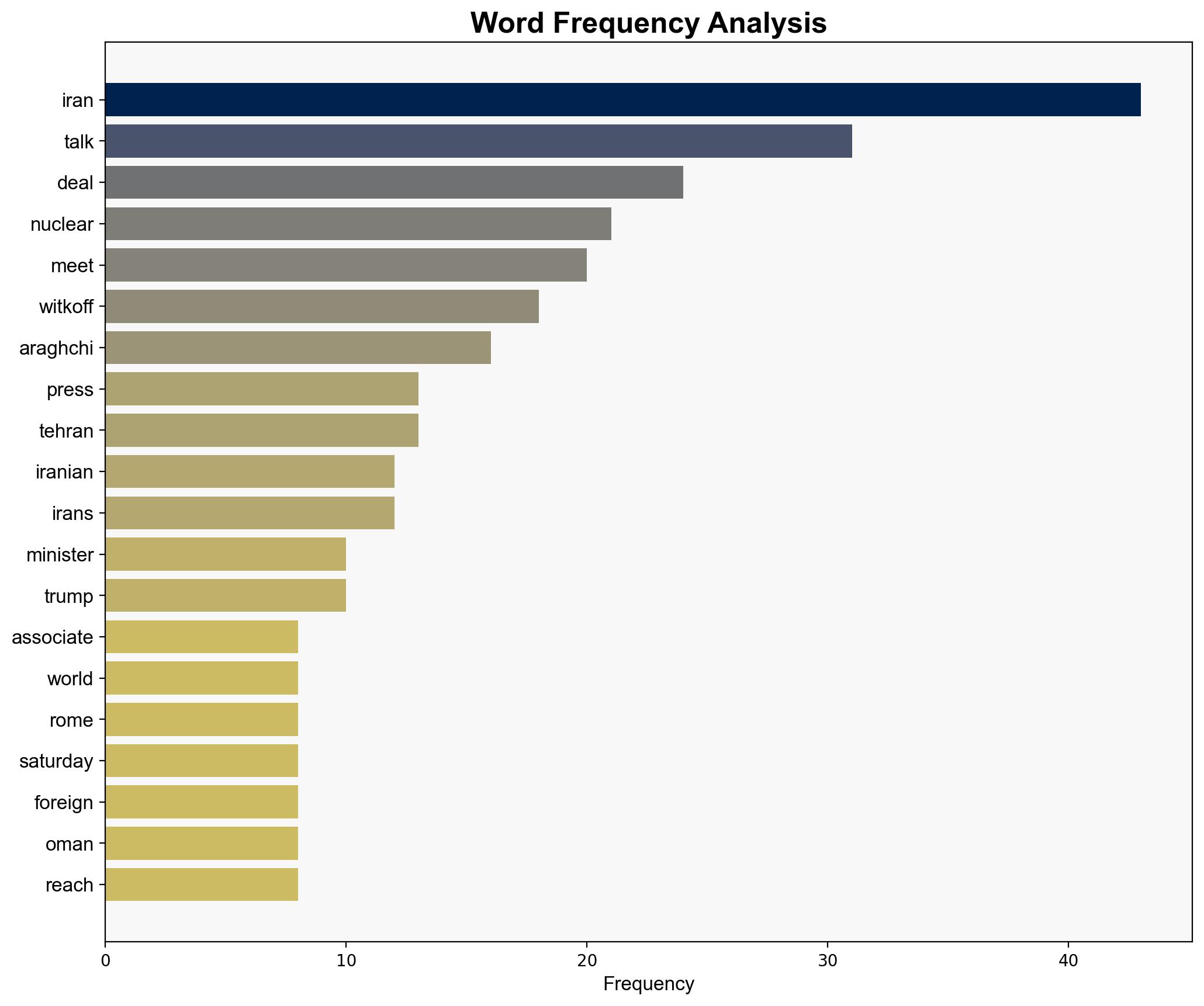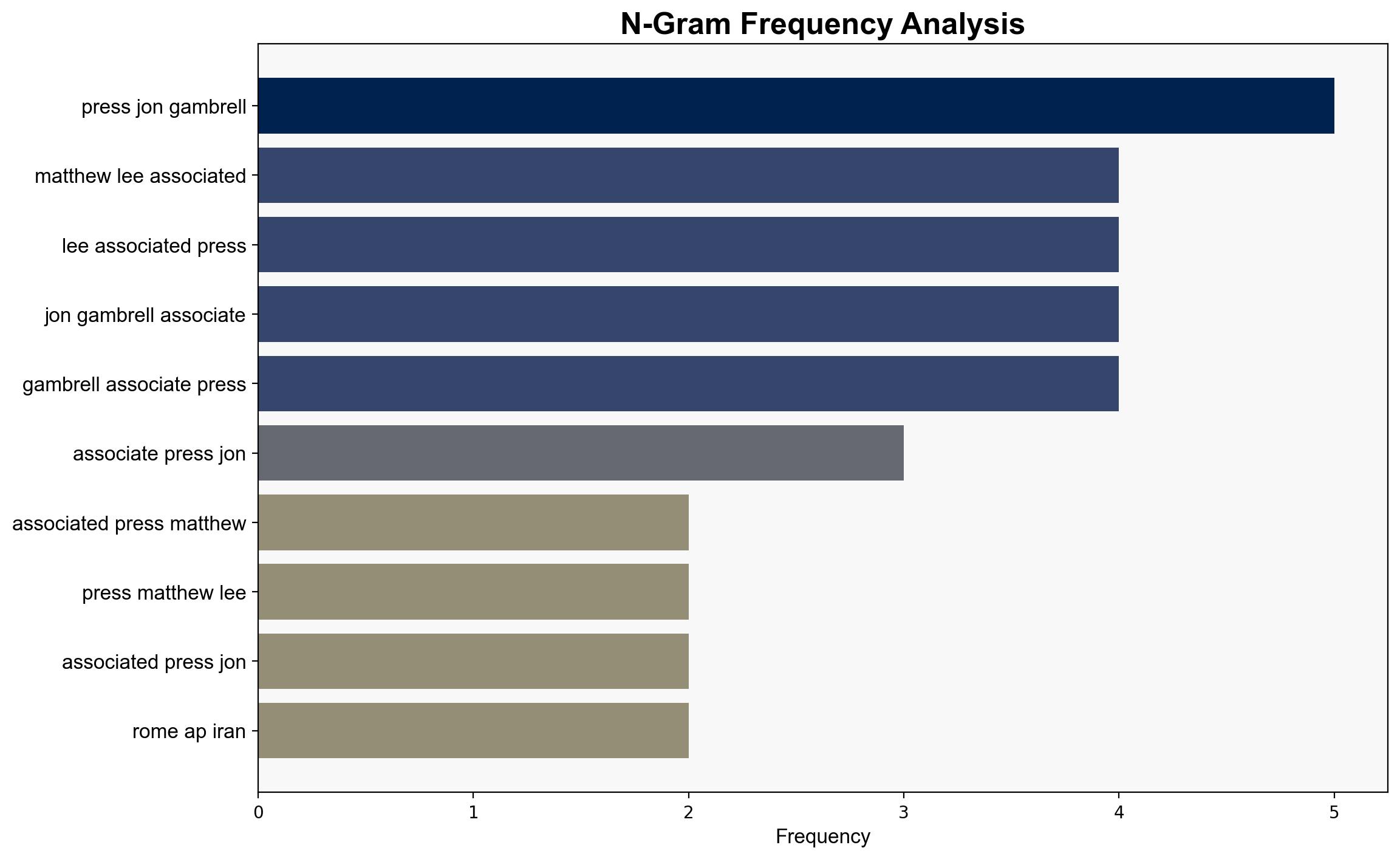Iran and US move to expert-level talks over Tehrans nuclear program after 2nd round of negotiations – PBS
Published on: 2025-04-19
Intelligence Report: Iran and US Move to Expert-Level Talks Over Tehran’s Nuclear Program After 2nd Round of Negotiations – PBS
1. BLUF (Bottom Line Up Front)
The United States and Iran have progressed to expert-level discussions regarding Tehran’s nuclear program following a second round of negotiations. This development signals potential movement towards a diplomatic resolution, although tensions remain high due to regional instability and historical enmity. Recommendations include maintaining diplomatic engagement and preparing for potential military escalations.
2. Detailed Analysis
The following structured analytic techniques have been applied:
SWOT Analysis
Strengths: Renewed diplomatic engagement between the US and Iran; involvement of international bodies like the International Atomic Energy Agency.
Weaknesses: Historical distrust and previous unilateral withdrawal from agreements; potential for miscommunication.
Opportunities: Potential for a new agreement that limits nuclear proliferation; economic benefits from lifted sanctions.
Threats: Regional instability, including conflicts involving Israel, Hamas, and Houthi rebels; risk of military strikes on nuclear sites.
Cross-Impact Matrix
The negotiations could influence regional dynamics, potentially easing tensions if successful. Conversely, failure could exacerbate conflicts in the Middle East, affecting neighboring countries and global energy markets.
Scenario Generation
Scenario 1: Successful agreement leads to reduced regional tensions and economic growth in Iran.
Scenario 2: Breakdown in talks results in increased military actions and heightened regional instability.
Scenario 3: Prolonged negotiations without resolution maintain the status quo, with continued economic sanctions and regional tensions.
3. Implications and Strategic Risks
The ongoing negotiations present both opportunities and risks. A successful agreement could stabilize the region and improve economic conditions. However, failure could lead to military escalation and further destabilization. The involvement of key international players like Russia adds complexity to the negotiations.
4. Recommendations and Outlook
- Encourage continued diplomatic engagement and transparency in negotiations to build trust.
- Prepare contingency plans for potential military escalations and regional destabilization.
- Monitor regional actors and international stakeholders to anticipate shifts in alliances and strategies.
- Scenario-based projections suggest prioritizing diplomatic channels while preparing for adverse outcomes.
5. Key Individuals and Entities
Abbas Araghchi, Steve Witkoff, Badr al Busaidi, Donald Trump, Rafael Mariano Grossi, Antonio Tajani, Benjamin Netanyahu, Ron Dermer, David Barnea, Vladimir Putin.





